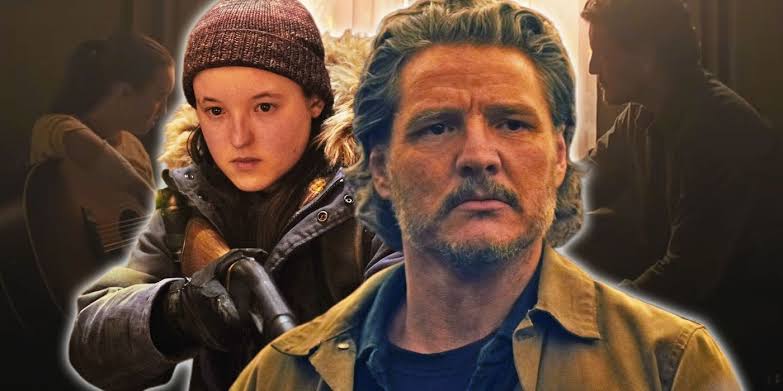Warning: If you have not watched Season 2 of The Last Of Us this review contains spoilers.
The Last of Us Season 2 extends the narrative weight of the first season but shifts its focus toward an intense moral examination of justice versus revenge. The season does not ask which is right, but what each costs—and whether either can truly satisfy the human drive for meaning in a world fractured by violence and loss. These themes are not explored through dialogue alone, but through the cumulative emotional and physical toll exacted on the characters, particularly Ellie (Bella Ramsey) and Abby (Kaitlyn Dever).
The narrative framework is split between two protagonists with opposing goals, each shaped by trauma and justified — in their own view— by moral necessity.
Ellie seeks retribution for Joel’s (Pedro Pascal) murder. Abby, on the other hand, views her act of killing Joel not as vengeance, but as justice for her father, who Joel killed in the prior season. Both characters rationalize their actions as morally necessary responses to wrongdoing. The show intentionally offers no definitive answer on which of them is right, forcing the viewer to evaluate not only the motivations behind their actions but also the ethical consequences.
What distinguishes Season 2 is how it refuses to glorify revenge. Violence is depicted with emotional and physical realism, often dragging out confrontations to discomforting lengths. When Ellie kills members of Abby’s group, the scenes are not triumphant but exhausting. The camera lingers on aftermaths—blood, grief, breathless silence. In one pivotal moment, Ellie spares Abby at the edge of the ocean, despite having every opportunity to finish what she started. This moment is not framed as redemption. Instead, it feels like a collapse, an acknowledgment that revenge has hollowed her out rather than restored anything.
Justice, in contrast, appears to require a communal context—rules, judgment, and a sense of closure. In the world of The Last of Us, none of those structures survive in a meaningful form. With no trusted institutions, justice becomes subjective and fluid. Ellie believes she is honoring Joel, but her decisions increasingly isolate her. Her relationship with Dina deteriorates. Her sense of purpose, once grounded in a mission, becomes detached and compulsive. Revenge fails to restore order or heal grief. It only creates further dislocation.
Faith, though not explicitly framed in religious terms, runs beneath the season’s emotional core. Both Ellie and Abby act on belief—Ellie in the righteousness of her cause, Abby in the certainty that Joel deserved to die. These beliefs function as quasi-religious convictions, shaping their identities and decisions. They hold onto them as a means of survival. However, both characters experience a kind of spiritual collapse when these beliefs fail to deliver the outcomes they expected.
The season’s depiction of the Seraphites, a cult-like religious group, offers a more explicit lens on faith. Their rigid doctrine and ascetic lifestyle show how belief systems can enforce a sense of justice in chaotic environments. But their practices are shown to be oppressive and violent, revealing how institutional faith can also be distorted by revenge. The Seraphites punish dissenters harshly and demand absolute loyalty. Their conflict with the Washington Liberation Front, Abby’s faction, mirrors the personal wars between individuals. Faith, in this context, becomes less about transcendence and more about control and identity.
What the show illustrates, however, is that faith—even when damaged—remains necessary. When Abby and Lev (Lan Alexander) escape the Seraphite island, it is not just a physical escape but an emotional severance from inherited dogma. Lev, a former Seraphite, carries the weight of his exile with him, but also begins to forge a new understanding of belief—one that includes trust, care, and a willingness to protect without domination. His quiet presence reshapes Abby’s sense of purpose, offering a contrast to Ellie’s increasingly isolated journey.
Ellie’s final decision to leave behind her pursuit of Abby comes after a dream sequence in which she replays her last conversation with Joel. In it, she expresses a desire to try to forgive him for what he did—robbing the world of a cure to save her. This scene reintroduces the concept of mercy. It also marks a return to a more human, fragile form of faith: not in systems or ideals, but in people, and in the possibility of healing, however small.
The season ends not with resolution, but with disconnection. Ellie returns to an empty home. Abby, too, loses everything familiar. Neither finds justice. Neither finds peace. But the suggestion is that revenge cannot fill the void left by grief, and that the pursuit of justice, when unmoored from compassion, becomes indistinguishable from vengeance. Faith—in self, in others, in a future—may be the only remaining thread that binds these characters to any sense of meaning.
Season 2 does not resolve the questions it raises. Instead, it immerses the viewer in the process of asking them. By grounding its themes in specific, often brutal, choices, it challenges any simplistic reading of justice or revenge. It shows how easily moral conviction can become destructive when it disconnects from empathy. And in doing so, it leaves open the question of what kind of faith is still possible in a world where justice is personal, and revenge is cyclical.





